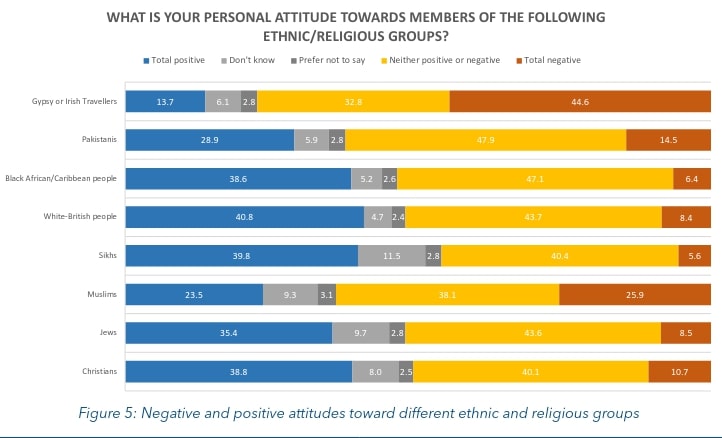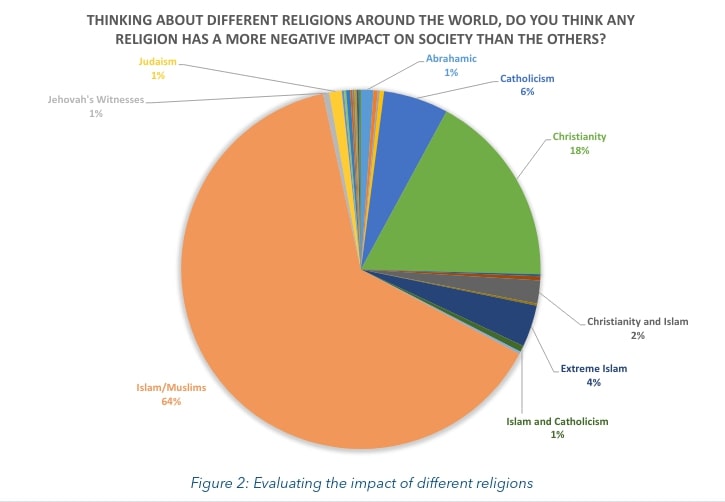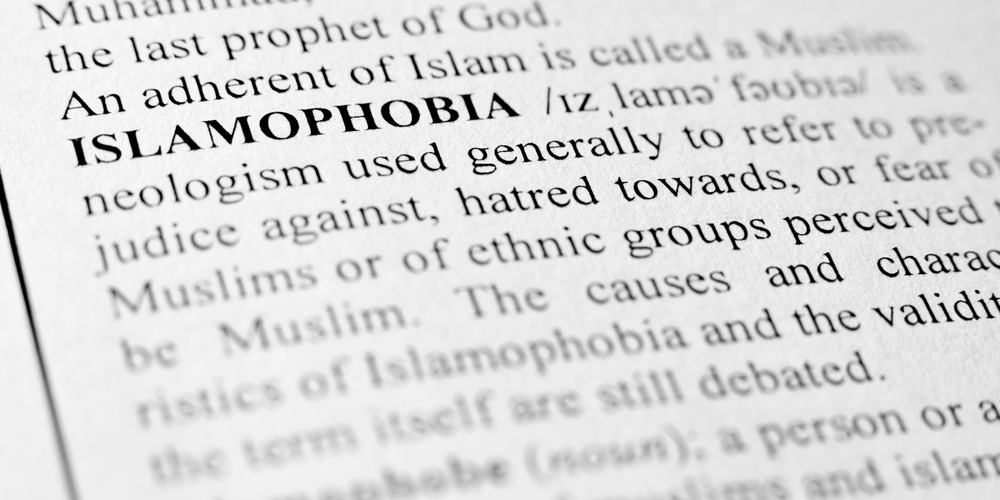Dinner Table Prejudice: Islamophobia in Contemporary Britain
Survey shows high levels of Islamophobia, with over a quarter viewing Muslims in a negative light.
A new survey has revealed high levels of Islamophobia in the UK, with 25.9% of those polled viewing Muslims in a negative light.
The survey, carried out by the University of Birmingham in conjunction with YouGov, polled 1,667 people for their views on different religious and ethnic groups.
“The aim was to map the extent of Islamophobia in British society and provide better data on that,” said Stephen Jones, a Lecturer at the University of Birmingham, at the launch of the report. What we did “is new and almost unique... [to] contrast different religious and ethinic groups...around the wider discourse around Islamophobia in the UK,” he said. Muslims account for an estimated 5% to 6% of the UK population.
'The Dinner Table Prejudice: Islamophobia in Contemporary Britain' report by Jones and Amy Unsworth investigates prejudice against Muslims as a group of people and Islam as a belief system, and showed how these two varieties of Islamophobia appear differently in British society.
The title of the report was taken from a statement in 2011 by former Conservative chair Baroness Sayeeda Warsi, when she said that Islamophobia has “passed the dinner table test” by going beyond extreme positions into more middle-class respectability.
The report reflected this assertion, noting that while “hostility to ethnic and religious minorities, including Muslims, tends to be more common among people who are politically conservative, nationalistic and from lower social grades,” the survey showed that “prejudice towards Islam and its teachings does not follow this pattern. This prejudice is more evenly spread across political groups and more common among educated middle classes.”
Muslims are the UK’s second ‘least liked’ group, after Gypsy and Irish travellers, with 25.9% of the British public feeling negative towards Muslims (with 9.9% feeling ‘very negative’) compared with 8.5% for Jewish people, 6.4% for black people, 8.4% for white people, and 44.6% for Gypsy and Irish travellers.

The survey also debunked sensationalist claims made in the UK media that parts of the UK are under Sharia law and are ‘no-go areas’ for white people. The report noted that “more than one in four people, and nearly half of Conservative and Leave [the European Union, Brexit] voters” held “views about Sharia ‘no-go areas’: 26.5% of the British public agree that ‘there are areas in Britain that operate under Sharia law where non-Muslims are not able to enter’. This increases to 43.4% among Conservative voters and Leave voters. In addition, 36.3% of British people, and a majority of Conservative voters (57.3%) and Leave voters (55.5%), also agree that ‘Islam threatens the British way of life’”.
“The electorate really buys into this conspiracy theory [about Sharia ‘no-go’ areas],” said Jones.
The survey showed that “those who attend religious gatherings and who believe in God are less likely to view Muslims negatively than people who do not do these things. Some 23.5% of ‘believers’ view Muslims negatively compared with 29.8% of ‘unbelievers’.”
However, 71.4% of those polled consider that at the global level, religions bring more conflict than peace. “The UK is increasingly a non-religious country, and a anti-religious people,” said Jones. In the survey, more people agree that religious people tend to be less rational than non-religious people, 36.5% compared to 18.8%.
In a open-response question on which global religion has a more negative impact on society than others - answered by 20.3% of the total survey sample – 64% named Islam as the ‘most negative’ religion.

The report also highlighted that prejudice was higher among middle and upper-class occupation groups than people from working class occupational groups. It noted that “British people from higher professional occupations, who tend to be more educated, seem to suffer more from... a systemic miseducation about Islam itself.”
The study uses a definition of Islamophobia that includes racism. "What our data suggested was that, with religion not being subject to the same social sanction as remarks about race, culture, and discrimination, narratives about Islam as a belief system allowed liberal, middle-class participants to express anxiety about Muslims without fear of censure," the report states. "Among conservative, libertarian or populist interviewees, stereotypes about Islamic belief often went hand-in-hand with cultural othering and sometimes overt racism."
The study follows a December report, titled ‘British Media’s Coverage of Muslims & Islam’, which revealed that almost 60% of online media articles and 47% of TV clips associate Muslims or Islam with negative aspects or behaviour.
© SalaamGateway.com 2021 All Rights Reserved
